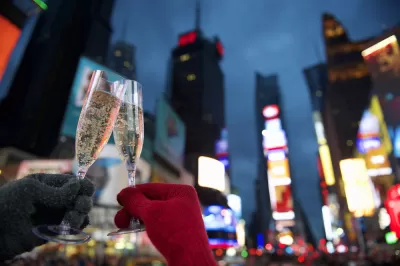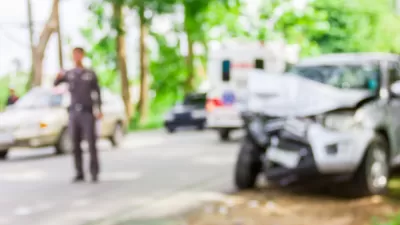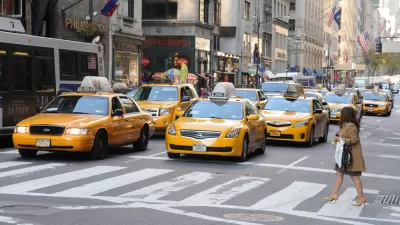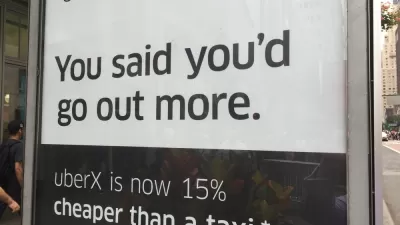A news study raises questions about the public health effects of the widespread availability of a ride enabled by companies like Uber and Lyft—while it's easier to avoid drunk driving, it's also easier to drink.

An article published by The Economist reveals a new twist in the ongoing scientific inquiry into the effects ride-hailing companies like Uber and Lyft have had in society:
Among other things, Uber has made it far easier for party-goers to get home safely. One study published in 2017 found that after Uber’s arrival in Portland, Oregon, alcohol-related car crashes declined by 62%. But at the same time, the spread of ride-hailing apps may have tempted people to drink to excess, knowing that they won’t be at the wheel. A new study by three economists—Jacob Burgdorf and Conor Lennon of the University of Louisville, and Keith Teltser of Georgia State University—finds that the widespread availability of ride-sharing apps has indeed made it easier for the late-night crowd to binge.
The article details the city's methodology, and briefly discusses the scientific ambivalence about the public health impacts of ride-hailing companies.
FULL STORY: After Uber arrives, heavy drinking increases

Planetizen Federal Action Tracker
A weekly monitor of how Trump’s orders and actions are impacting planners and planning in America.

Restaurant Patios Were a Pandemic Win — Why Were They so Hard to Keep?
Social distancing requirements and changes in travel patterns prompted cities to pilot new uses for street and sidewalk space. Then it got complicated.

Map: Where Senate Republicans Want to Sell Your Public Lands
For public land advocates, the Senate Republicans’ proposal to sell millions of acres of public land in the West is “the biggest fight of their careers.”

Maui's Vacation Rental Debate Turns Ugly
Verbal attacks, misinformation campaigns and fistfights plague a high-stakes debate to convert thousands of vacation rentals into long-term housing.

San Francisco Suspends Traffic Calming Amidst Record Deaths
Citing “a challenging fiscal landscape,” the city will cease the program on the heels of 42 traffic deaths, including 24 pedestrians.

California Homeless Arrests, Citations Spike After Ruling
An investigation reveals that anti-homeless actions increased up to 500% after Grants Pass v. Johnson — even in cities claiming no policy change.
Urban Design for Planners 1: Software Tools
This six-course series explores essential urban design concepts using open source software and equips planners with the tools they need to participate fully in the urban design process.
Planning for Universal Design
Learn the tools for implementing Universal Design in planning regulations.
Heyer Gruel & Associates PA
JM Goldson LLC
Custer County Colorado
City of Camden Redevelopment Agency
City of Astoria
Transportation Research & Education Center (TREC) at Portland State University
Camden Redevelopment Agency
City of Claremont
Municipality of Princeton (NJ)





























